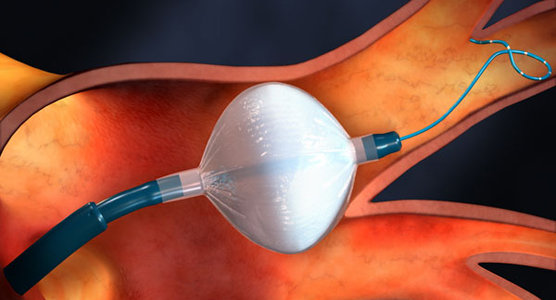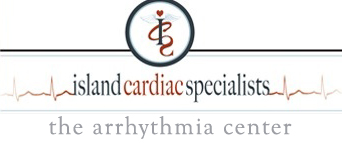|
 |
| ATRIAL FIBRILLATION Nobody wants to have atrial fibrillation. Unfortunately, it is the most common arrhythmia in the world. Whether it causes you debilitating symptoms or just an occasional fluttering in the chest, physicians have long known that atrial fibrillation is associated with an increased risk of stroke, heart failure, and death. Fortunately, the last decade has witnessed a revolution in the treatment of atrial fibrillation. Advances continue to be made at a startling pace. Keeping pace with the changing and varied options for managing atrial fibrillation is challenging. Though many primary care physicians and cardiologists are familiar with the traditional management of atrial fibrillation, cardiac electrophysiologists (cardiologists who have had additional, specialized training in the management of arrhythmias) focus on treatments which are on the cutting edge of controlling the symptoms and consequences of atrial fibrillation. We believe strongly that every patient with atrial fibrillation should be seen at least once by a cardiac electrophysiologist. The Atrial Fibrillation Clinic at the Arrhythmia Center is uniquely committed to the care of patients with atrial fibrillation. We work with you to review your entire medical history. We discuss carefully with you both the ways in which a combination of lifestyle modification, medications, and minimally invasive procedures such as catheter ablation can keep you safe and well in the years to ahead. Come talk to us. What is catheter ablation? For many years, the only treatment available to patients with atrial fibrillation were medications to minimize the symptoms of palpitations and blood thinners to help decrease the rates of stroke. Occasionally these medications were well tolerated and effective, but often they failed to adequately control the symptoms. Not infrequently, they caused serious side effects. Fortunately, over the past decade, research by electrophysiologists has identified the triggers of atrial fibrillation in the vast majority of patients. This research has found that in most patients with atrial fibrillation, the pulmonary veins, which are blood vessels that drain oxygenated blood from the lungs to heart, start to develop abnormal electrical activity. This abnormal activity can travel from the veins into the heart, setting off a chain reaction that results in atrial fibrillation. Electrophysiologists have developed a non-surgical procedure called atrial fibrillation ablation to prevent the abnormal signal from the pulmonary veins from invading in the heart, preventing the initiation of atrial fibrillation. In this procedure, burning or freezing energy is used to create an electrical roadblock at the point where the veins connect to the heart. We can preserve the ability of the veins to deliver blood while preventing those same veins from triggering atrial fibrillation. The efficacy of catheter ablation and safety of the procedure have led the American Heart Association, the American College of Cardiology, the European Society of Cardiology, the Asia-Pacific Heart Rhythm Society, the Society of Thoracic Surgeons, and the Heart Rhythm Society all to endorse ablative therapy for the treatment of symptomatic atrial fibrillation. I don't want to have atrial fibrillation anymore.
Am I a good candidate for atrial fibrillation ablation? How successful is the ablative procedure? Do you use burning or freezing energy for the
procedure? Why should I have the electrophysiologists
from Island Cardiac perform the procedure? At Island Cardiac, our electrophysiologist have pioneered many of the newest treatments for atrial fibrillation. We were the first in Long Island to perform the cryoballoon procedure for atrial fibrillation and to date, we have performed more cryoballoon procedures than any other center in New York State. We have also performed the first nContact convergent ablation procedure on Long Island. This combined endovascular and epicardinal approach is designed specifically for patients who are not traditional candidates for ablation. I've already tried the ablation and it didn't
work for me. Is there value in coming to the Arrhythmia Center? Am I awake for the procedure? How long does
it take? How long am I in the hospital after an ablation? Do I need to be on blood thinners for my atrial
fibrillation? If so, which ones? I have had bleeding problems with blood thinners
but I am worried about strokes? Do I have any options?
|
The Arrhythmia Center at ICS • 516-877-2626 • 1401 Franklin Avenue, Garden City, NY 11530 |
